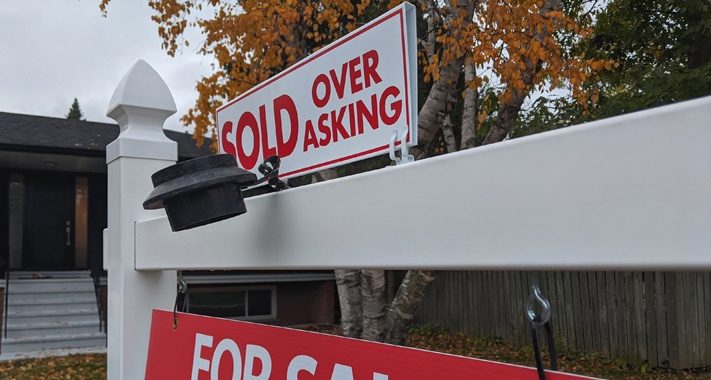
A bidding war is a real estate term that describes the scenario when multiple interested parties make offers on the same house. Then, the seller decides which offer they want to accept. If the offers are similar, the seller could ask the potential buyers to increase their offers to outbid each other.
Winning the bidding war is all about convincing the seller that your offer is the strongest and most beneficial to them. How do you demonstrate that? Check out the tips below to figure out your bidding strategy.
1. Obtain a Pre-Approval Letter
To purchase a house, buyers need to show that they qualify for financing beforehand. Therefore, a buyer has a significant advantage in winning the bidding war by getting a mortgage pre-approval letter. With a mortgage pre-approval, a lender evaluates your finances, like your credit score and credit report, to decide whether they can lend you the money to buy the house. Other documentation they examine is W-2 tax forms and your bank statements.
A pre-approval letter boosts the profile of a potential buyer, signaling to real estate agents and sellers that you're financially approved to buy the house. It's better to have a pre-approval letter with any offer you make in order to be a more serious candidate for the home.

2. Make a Competitive Offer
Making a competitive offer by increasing your bid is another strategy to get the seller's attention. So, if a home is priced at $400,000 and you're in a bidding war with other potential buyers, raise the bar by adding to your offer.
Figure out how much more you can afford to spend, like $5,000, and offer $405,000 instead. If needed, keep increasing your price until you've reached your budget limit. Of course, it's still possible to lose the bid, but if you really want the house, it’s best to err on the higher side earlier on.
3. Increase Your Earnest Money Offer
Making a competitive offer can help improve your chances of getting the home you're making an offer on. A part of increasing your chances can include providing more earnest money, which is similar to a security deposit. Buyers usually provide 1-2% of the home's purchase price as earnest money. It gives the seller more assurance that you will follow through with your home purchase.
So, if you put down more earnest money, it will show the seller that you're serious about your offer and that you will follow through with the purchase until closing.

4. Limit or Remove Contingencies
With home purchase contracts, contingencies allow buyers to walk away from the deal without losing their earnest money if they can't meet certain conditions. But, if you're in a bidding war, you'll want to use these contingencies carefully.
If you submit a clean offer free of excessive contingencies and demands, your offer will stand out for the better. However, even with a clean offer, money talks. So prepare to pay a certain amount above the listing price in addition to limiting contingencies.
Buyers can also include a home sale contingency in their offer, which states that the contract is contingent on the buyer selling their property. If the sale falls through, the contract is terminated. But, if it goes through, the contract moves forward.
5. Be Flexible On the Closing Date or Move-In Date
Being flexible with the closing and move-in date can help win the bidding war. Time is valuable, and the seller may need more time before the buyer closes or moves in. If they're concerned about having the house ready, work with them to choose a time and date that works for them. Even if you'd love to close and move in at your convenience, you must be flexible with the seller's available time slots.

6. Increase Your Down Payment
If you cannot pay entirely in cash, you can agree to pay a larger down payment. Paying more in this way can increase your odds of approval and make your bid more enticing to the seller. Typically, putting down 20% of the home's purchase price is ideal for a down payment.
7. Work With An Experienced Local Real Estate Agent
When you're looking to buy a house, you'll need the help of an experienced real estate agent who knows the market well. Your agent will guide you through the lengthy process of submitting your offer without overpaying. Because the market changes, you'll need an agent who can successfully navigate the market with you.
Ask your agent to contact the seller's listing agent for critical insights about the home. Your agent can use data from the local market to help you get the best balance between saving your money and securing your ideal home.

8. Keep the Home Inspection Timeline Short
Agreeing to keep the home inspection contingency short helps get one hurdle out of the seller's way. When the seller accepts an offer, and their house goes off the market, a seller usually doesn't want to wait long for the home inspection to occur. So make the contingency period no longer than one week to eliminate the stress on the seller waiting around for the inspection date.
9. Offer to Pay Seller Closing Costs
To increase your chances of winning the bidding war, consider covering the seller's closing costs, including commissions and title fees. If the seller knows they won't have to cover these expenses themselves, your offer may stand out and become more appealing. Offering to pay these costs may even beat a higher offer from another buyer.

10. Pay In Cash, If Possible
If you can offer an all-cash bid, you'll gain an advantage over other buyers because the approval process will go much smoother. When buying with cash, you won't need to go through the lengthy approval process with a lender who would request an appraisal. When paying in cash, there are fewer things that can go wrong with the transaction and it allows you to close on the house as soon as possible.
11. Discuss Your Multiple-Offer Strategy Before You Get Into a Bidding Situation
When handling multiple offers, sellers typically accept the most attractive offer. In addition, this offer usually goes above the asking price and includes extra perks. Ensuring you have a plan of action figured out beforehand can ensure you are quick to submit offers and counteroffers.
So hit the ground running with your best offer, as well as financial proof that you can close on the home. Discuss what your price ceiling is, what perks you are willing to include and which you aren’t, and what bargaining chips you have in your pocket. Ultimately, the seller makes the final decision, but your agent can discuss a strategy to handle bidding against multiple offers to entice the seller as much as possible.
12. Offer a Lease Back
Often, sellers haven't found their next home when selling their current house. Even if they have, they typically won't be able to move out before the sale finally closes. So, offering a lease back to the seller for a short period so they can move out, or offering a more extended period if they need to find a new home, will give them extra incentive to take your offer more seriously.
According to the National Association of Realtors, nearly 20% of sellers require a leaseback period. Although most sellers move out between contract acceptance and closing, there are still a number of sellers who could be swayed by your offer of a leaseback period.

How To Beat A Contingent Offer
To beat a contingent offer, have your real estate agent determine if the seller accepts offers while the sale is pending. Your agent can also find out if the seller included a kick-out clause in the sales contract. This clause allows the seller to continue receiving offers while the buyer awaits a home inspection, appraisal, or financing to close on the house.
If the seller gets a more enticing offer, the kick-out clause allows them to let the first potential buyer know that they can do one of the following options:
* Match or exceed the competing offer
* Agree to waive the contingencies in the contract
* Or, agree to waive some of the contingencies
However, if there isn't a kick-out clause, you can ask your real estate agent to watch the pending sales process. It's possible that the buyer could end up backing out after receiving the home inspection report or back out due to not having the finances they need for the closing costs.
If the sale falls through, be ready to make an offer that matches or exceeds the previous offer. Because the sellers can put the home back on the market, you must act quickly to get your offer out there.
When you're a buyer on the search for your dream house, getting caught in the middle of a bidding war is stressful enough. Especially if you're left wondering if you made the best offer or if there was more you could’ve done, but the key to winning a bidding war is to put the best offer possible for you out there.
If you don't get the house you were interested in, don't let it discourage you from buying. Homebuying takes time, money, and effort, but it's worth it in the end when you find your dream house.
So put yourself and your offer into the mix with the help of an experienced real estate agent. The rest will fall into place. For more home buying advice, check out BHGRE HomeCity!










